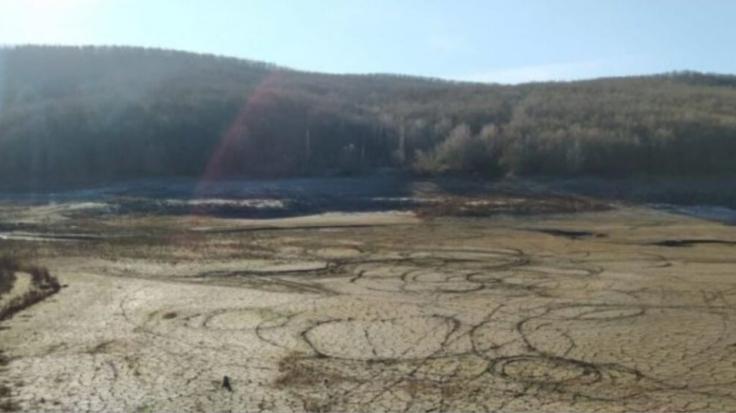The Association of Reintegration of Crimea gave the submission to UN Special Rapporteur on the Rights to Freedom of Peaceful Assembly and of Association Mr. Clément Nyaletsossi Voule for his report regarding climate changes at the 76th session of the UN General Assembly. Our submission highlighted the situation in ongoing water crisis and related oppressions of the human rights on the issues of peaceful assembly and association in the Crimea. It deals with the issues of non-effective humanitarian, financial, industial, environmental and social policy of the Russia’s de-facto “authorities” in the Crimea that caused the water crisis which aggravates from 2020 in this Ukraine’s region.
We pointed to the Rapporteur that the climate justice activism, including the peaceful assemblies and associations, is impossible in the modern Crimea. Russia’s de-facto “authorities” ban and punish any civil activities on peninsula, that are not controlled by them. Such “authorities” banned the Mejlis of Crimean Tatar People in 2016 and since 2014 they punished hundreds of persons, who tried to held the meetings, including the meetings against the water policy in the Crimea in 2020. Crimean residents tried to collect signatures against de-facto “authorities” ill management in 2020 in Simferopol and against water desalination station’s construction in Yalta. The organisers of those signatures’ collection were fined illegally.
Association added that the common ways of restriction the civil activism in the Crimea is a total ban the meetings and NGOs, the illegal fines against its participants and organisers and the oppressions the civil activists and bloggers, who highlight the climate changes and water crisis issues, including arrests, raids and criminal proceedings. In 2020 Yalta public activist Ludvika Papadopulu got some “police” raids to her flat, related with her ecologic and human rights publications . In 2021 Russia’s de-facto “authorities” proclaimed the criminal proceeding on “international terrorism” and “extremism” against some Ukrainian activists and bloggers, including our Association’s members who reflected the negative impact of Russia’s policy on the water crisis in the Crimea .
And also we reminded to the Rapporteur that indigenous Crimean Tatar people has its representative body, Mejlis, in Crimea with a system of local mejlises. They all were banned by Russia’s de-facto “authorities” in 2016 as “extremist structures” and now this indigenous people has no any practical possibility to make any influence on the Russia’s industrial, social and military policy that caused the water crisis in the Crimea in the climate changes situation. More, Russia did not execute the ICJ’s direct order to cancel the ban of the Mejlis since 2017 to this day.
Submission pojnted that the abovementioned examples of repressions by the Russia’s de-facto “authorities” (criminal proceeding against Ukrainian activists Ihor Lutsenko and Borys Babin, raids against Ludvika Papadopulu, fines against members of meetings against water policy in Yalta and Simferopol) show how Russia’s de-facto “authorities” violate systematically the civil rights, including right to assembly and meetings trying to hide the negative impact of Russia’s policy on the water crisis in the Crimea in the climate change situation.
Association stressed its belief that UN special research on the connection the civil rights and ecologic rights to water and sanitation in situations of climate changes, armed conflicts and related “grey zones” like Crimea, done by the UN Special Rapporteur, may be a starting point for improvement of the situation. We invited the Special Rapporteur’s to Ukraine, including Crimea thast will contribute to collection of information, and would enable the Rapporteur to make a first-hand impression of the situation with rights to freedom of peaceful assembly and of association in this region. Also we recommended in the submission to UN Human Rights Monitoring Mission in Ukraine to monitor more actively the issues of the water crisis in the Crimea and human rights’ violations done by the Russia’s de-facto “authorities” regarding to this issue.
In 2021 the Association’s submission on the water crisis’ issues were elaborated already by the UN Special Rapporteur on the Human Rights to Safe Drinking Water and Sanitation and to the UN Special Rapporteur on Human Rights and Environment. The relevant reports of thore Rapporteurs were presented to the UN Human Rights Council.
Source: arc.construction

